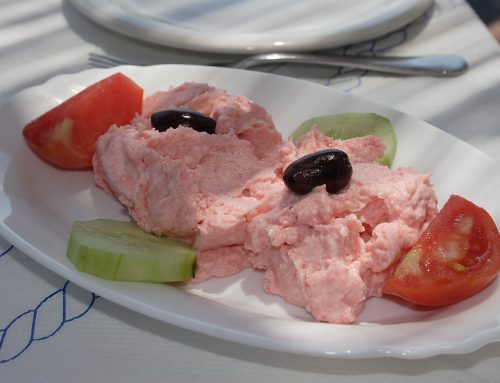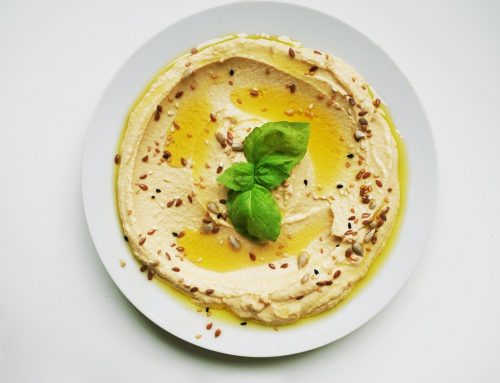Americans seem to have a love-hate relationship with mayonnaise. It is the best-selling condiment in North America, and it is in a lot of popular American foods, from sandwiches and tuna salad to deviled eggs and tartar sauce. But mayonnaise has seemed to have acquired a bad reputation. A high-fat food, mayonnaise is often thought to be unhealthy. It is mostly fat, and therefore calorie dense, so it’s easy for calories and fat to quickly add up when you’re not paying attention to portion sizes.
In addition, some people steer clear of the popular condiment due to concerns that improperly stored mayonnaise may be a hotbed for bacteria. The safety of potato salad left outdoors during a Fourth of July barbecue or a tuna salad sandwich from a food truck, for instance, may be questionable. The truth is with careful selection, proper preparation and storage, and moderate use, mayonnaise can be a delicious and healthy addition to a low-carb diet.
What Is Mayonnaise?
Mayonnaise is a magical substance: Two liquids come together to create a viscous, yet solid form. Mayonnaise is a combination of oil, egg yolk, an acidic liquid (like lemon juice or vinegar), and often a touch of mustard. When blended together, these ingredients become a thick, creamy, stable emulsion. The trick is in the emulsion, the process of combining two substances that would otherwise tend to not mix, that turns the liquid oil into a solid.
The Science Behind It
For emulsification to happen, there is an emulsifier, in this case, egg yolk, to bind together the hydrophilic (water-loving) component and the lipophilic (oil-loving) component. The emulsifier binds the lemon juice or the vinegar with the oil and does not allow separation to occur, in turn producing a stable emulsion.
In homemade mayonnaise, the emulsifiers are mainly the lecithin from the egg yolk and a similar substance in mustard. Commercial brands of mayonnaise can sometimes use other types of emulsifiers and stabilizers.
Is Mayonnaise Unhealthy?
Depending on the type of diet you follow, mayo can be considered good or bad for you. Mayonnaise is mostly oil, so it is a high-fat and calorie-dense condiment with 100 calories per tablespoon.
If you are on a low-fat or low-calorie diet, you’ll want to exercise portion control and measure out the amount of mayo you use. For people on a low-carb or ketogenic diet, mayonnaise can be enjoyed more liberally. While mayo is made almost entirely made of fat, it mostly unsaturated fat, which is a healthier fat.
Why the Oil Matters
The good news is that almost any edible oil can be used to make mayonnaise, so the oil itself is the biggest factor in the healthfulness of the recipe. In the United States, most commercial mayonnaise is made with soy oil, which some experts feel is problematic due to its high levels of omega-6 fats.
The best-selling commercial mayonnaise in the U.S. is Hellman’s brand in the east and Best Foods in the west. Those companies sell mayo made from soy oil in the U.S. and canola oil in Canada. Canola oil has a lower omega-6 content than soy oil. If you make the mayonnaise yourself, you can use any kind of oil you want, including olive or avocado oil.
What About Bacteria?
The concern about bacteria in mayonnaise is mainly rooted in the fact that homemade mayonnaise is usually made with raw egg yolk. Commercial mayonnaise is not normally a problem because it is made with pasteurized eggs and is produced in such a way as to keep it safe.
In addition, mayonnaise contains vinegar or lemon juice, acids that may help keep some bacteria at bay. However, a 2012 study found homemade mayonnaise may still contain salmonella bacteria despite different acidic compounds used. Because of this, some people prefer to pasteurize an egg in 140°F water for 3 minutes before making mayonnaise.
Regardless of the type of mayonnaise you choose, always follow food-safety guidelines. Mayonnaise-based dishes should not be left out of the refrigerator for more than two hours. Opened jars of commercial mayonnaise should be stored in the refrigerator after opening, and discarded after two months.
Is Reduced-Fat Mayonnaise Recommended?
Many nutritionists recommend reduced-fat mayonnaise for patients who are on a low-calorie, low-fat, or exchange diet. While reduced-fat mayonnaise has fewer calories and less fat than regular mayonnaise, the fat is often replaced with starches or sugar to improve texture and flavor. If you are watching carbohydrates or sugar in your diet, check the nutrition label and ingredients list before deciding on the type of mayonnaise that is right for you.
Source: Verywell Fit





